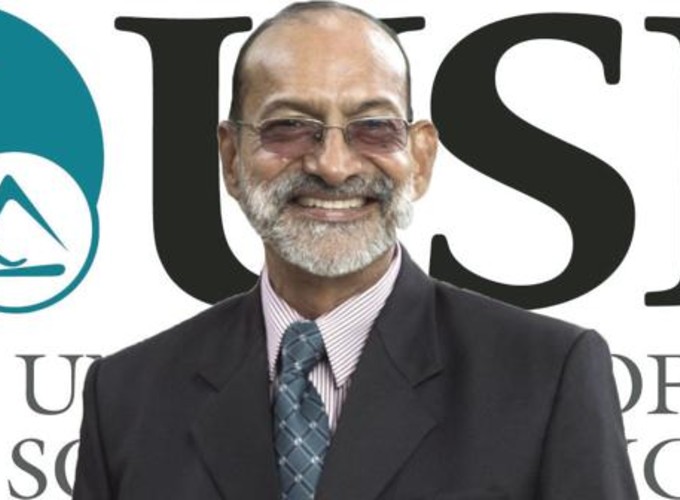
Pacific Media Watch Newsdesk
University of the South Pacific staff and students have released a rebuttal to former Vice Chancellor Professor Rajesh Chandra’s claim that he has been “vindicated” from any wrong-doing during his tenure at the university.
The rebuttal was prepared and sent to the Fiji Sun on September 20 in response to Chandra’s September 14 opinion piece claiming that the BDO Report into allegations of USP mismanagement had found nothing against him.
USP staff and students said that despite frequent regular follow up emails and calls to the Fiji Sun editor-in-chief and publisher, the rebuttal went unpublished, with the editorial team claiming legal advice from their lawyers was pending.
READ MORE: Vanuatu Daily Post: ‘Serious Concerns’ in USP Audit Report
Due to the lack of response, representatives of the 500 staff and students behind the rebuttal decided to release it publicly via social media.
“Concerned staff believe that Fiji Sun has been given fair and adequate opportunity to confirm or decline the rebuttal for publication,” a press release read.
– Partner –
“For good governance to prevail at USP, the rebuttal is attached for your information and necessary action.”
The rebuttal contested a number of Chandra’s claims, namely that the BDO Report found no fraud, corruption or abuse against him.
“BDO reported that four remuneration mechanisms at the University were collectively exploited, leading to instances of ‘significant cash leakages’ over a number of years,” the rebuttal read.
“These leakages of public funds from USP was a serious observation which calls for explanation and, in our opinion, possible police inquiry.”
The rebuttal also challenged Chandra’s argument that everything he did during his tenure was within the statutes governing the delegations of the VC, staff ordinances and other ordinances and policies.
“If that were true, then we pose several questions for Prof. Chandra to consider. Which Statutes or Ordinances entitles him to cash in on professional development leave three to four months from his retirement?”
It also queried his alleged spending of the incoming Vice Chancellor contingent funds, his alleged appointment of staff on three-year renewal contracts without adhering to the staff review process and other indiscretions, alleged in the initial report which prompted the investigations.
“The fact of the matter is that Prof. Chandra assumed powers that violated the previously established norms and conventions at the university. A university is a place where best practices are established, not where they are violated.”
In his opinion piece, Chandra claimed that his actions were within the statutes governing staff ordinances: “The Vice Chancellor shall have the authority to adjust terms and conditions of service of staff members in specific cases when it is in the interest or the University.”
The rebuttal claimed that the above only applies if the Vice Chancellor had sound reason, good advice and made that decision for the good of the University.
“When he took professional development leave in September, three months before his retirement in December 2018, one could ask, was that leave for the good of the University?” the rebuttal asked.
The rebuttal also contested Chandra’s claim that the Fiji Independent Commission Against Corruption found no wrong-doing against him, arguing that FICAC’s investigations were simply halted to avoid duplicating findings with BDO, which was conducting an independent investigation.
“For FICAC to demonstrate it’s independence it must insist on getting the BDO report and formulate appropriate charges. We are quite certain this will happen in due course, if not in Fiji, then in any jurisdiction of an appropriate member country of USP.”
The BDO investigation resulted in a range of complex and competing findings which corroborated many of the claims of the university staff.
“BDO found that bonuses and, in some cases, multiple bonuses have been paid extensively to staff which is in breach of the USP policies,” it read.
However, it stopped short of levying responsibly on anyone and found that most “of the decisions investigated were made within the boundaries of the VCP’s Ordinance.”
“While the allegations highlighted in the paper have arisen in an unfortunate manner, they have raised serious concerns that require attention and action,” it concluded.
Article by AsiaPacificReport.nz





